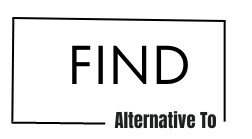A PERT chart is a tool used in project management to look at the different tasks needed to finish a project. PERT charts can be used to estimate how long each task will take because they show the minimum, maximum, and most likely times. These graphs work best when a lot is going on. With the help of PERT charts, you’ll have an easy-to-understand visual understanding of the project’s time requirements and the connections between tasks.
It will let you make well-informed decisions about the order in which activities should be done and when. If you use this precise map of your tasks and deadlines, you may be able to finish the project faster, with less time wasted and less confusion, and with better results for both your team and your clients.
Features
- Gantt chart
- Critical path
- Reports
- Dashboards
Similar to PERT Chart
License Model
PERTChartAlternatives Information
1: Task Lists
With the help of task list software's features, you can get your work in order. These features include tools for prioritizing tasks, setting deadlines, and keeping track of your overall productivity. This tool is meant to help you figure out your tasks and put them in the proper priority, project, and other categories. Putting your tasks on paper lets, you get more done in less time because you can see them all at once. Make sure your list of things…
2: Gantt Chart
The Gantt chart is one of the most popular and valuable tools for managing projects. It shows how different activities (tasks or events) fit into a certain amount of time. On the left side of the picture is a list of the tasks, and across the top is a timeline. Each activity is shown by a bar. The beginning and ending times of the bars and the total length of the bars showed when each event happened. It can be…
3: Project Timelines
A project timeline is an essential part of the planning phase, and it usually has extra parts that help track progress during the execution phase. Most people agree that every current project needs a project to stay on track. It's a great way to track which tasks have been started, are overdue, and have been finished and share that information with supervisors and teams. When used in its most basic form, project timeline software creates a graphical representation of the…
4: Kanban Boards
Kanban boards are used in agile project management to make tasks more visible, reduce the number of things considered "in progress," and limit interruptions (or flow). It could give agile and DevOps teams more structure in their day-to-day work. With the help of Kanban boards, both technical and service teams can ensure they do the right amount of work and get it done. Kanban boards use cards and columns and improve to reach this goal. With this newfound visibility, you…
5: Scrum Boards
Scrum boards are visual project management tools that Scrum teams use to keep track of their work progress and review their backlog items. The team's progress can be shown on a "Scrum board," which also keeps track of each member's sprint. Scrum boards are also called Scrum task boards or, more commonly, sprint boards. The Scrum board uses the fact that humans are visual beings to help the team understand how the sprint is going. Everyone on the team can…
6: Project Checklist
A project checklist ensures that nothing on the project planning checklist is forgotten or left unfinished. Crossing items off a list is a reminder and proof that they're done. A project checklist can help you start a new project by giving you a condensed, all-inclusive plan. If you put the items on your project checklist into categories, you can compare them more accurately. It's a good idea to have a checklist you can refer to throughout the project, and a…
7: Mind Map
Using a mind map is the best way to come up with ideas in a natural, unplanned way without worrying about the order or structure of those ideas. It helps you analyze and remember information by letting you organize your thoughts visually. A mind map is a diagram in which actions, words, opinions, or things are shown in a visual pattern that is not in order and is related to and built around a central idea or topic. This layout…
With the help of a project dashboard, a tool for managing projects, a project can keep track of the KPIs of multiple projects at once. Dashboards can do more than show performance metrics. They can also show progress reports and point out problem areas. They can be used to track how specific processes, projects, and advertising campaigns turn out. Putting in place a project dashboard can help organizations of all sizes. Companies may find that project dashboards help track progress,…
9: Flowchart
The Flowchart is a program that lets you make a flowchart online. You can change the chart to fit your needs and download it in a format of your choice. If you use Flowchart to create a flowchart, you can add an embedded version of that chart to your website. In other words, there are almost infinite ways to customize and use it. Since Flowchart is web-based, you and your project can work on a flowchart at the same time.…
10: Dashboards
Information management tools, like dashboards, are used to keep track of, collect, and show corporate data in an easy and flexible way. With the help of these visualizations, users can track KPIs, look at workflows, and get actionable insights. Now, everyone on your team can make charts and send automatic reports to those who make decisions in real-time. Everyone on the team, from the CEO to the most junior manager, can use the best method and format when looking for,…











